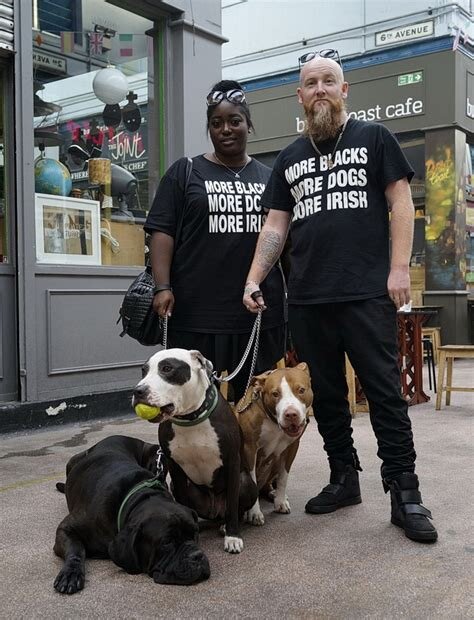This page is a permanent link to the reply below and its nested replies. See all post replies »
Irish and Africans Americans had lots in common and lots of contact during this period; they lived side by side and shared work spaces. In the early years of immigration the poor Irish and blacks were thrown together, very much part of the same class competing for the same jobs. In the census of 1850, the term mulatto appears for the first time due primarily to inter-marriage between Irish and African Americans. The Irish were often referred to as "Negroes turned inside out and Negroes as smoked Irish."
https://sites.pitt.edu/~hirtle/uujec/white.html
[image/video deleted]
[media=https:https://sites.pitt.edu/~hirtle/uujec/white.html
bijouxbroussard · F
@markansas Yes, but in the U.S. the Irish became very much represented in law enforcement and politics—a huge difference.
bijouxbroussard · F
@markansas Moreover, the term "mulatto" goes back to the slave days. It’s Spanish, just like "negro". Mulattos brought a higher price on the block.
@bijouxbroussardits a bit of a long read and the link will be to it. you know me and we agree on this.
Back home these "native Irish or papists" suffered something very similar to American slavery under English Penal Laws. Yet, despite their revolutionary roots as an oppressed group fighting for freedom and rights, and despite consistent pleas from the great Catholic emancipator, Daniel O'Connell, to support the abolitionists, the newly arrived Irish-Americans judged that the best way of gaining acceptance as good citizens and to counter the Nativist movement was to cooperate in the continued oppression of African Americans. Ironically, at the same time they were collaborating with the dominant culture to block abolition, they were garnering support from among Southern, slaveholding democrats for Repeal of the oppressive English Act of the Union back home. Some even convinced themselves that abolition was an English plot to weaken this country.
Upon hearing of this position on the part of so many of his fellow countrymen now residing in the United States, in 1843 O'Connell wrote: "Over the broad Atlantic I pour forth my voice, saying, come out of such a land, you Irishmen; or, if you remain, and dare countenance the system of slavery that is supported there, we will recognize you as Irishmen no longer." It's a tragic story. In a letter published in the Liberator in 1854, it was stated that "passage to the United States seems to produce the same effect upon the exile of Erin as the eating of the forbidden fruit did upon Adam and Eve. In the morning, they were pure, loving, and innocent; in the evening, guilty."
https://sites.pitt.edu/~hirtle/uujec/white.html
Back home these "native Irish or papists" suffered something very similar to American slavery under English Penal Laws. Yet, despite their revolutionary roots as an oppressed group fighting for freedom and rights, and despite consistent pleas from the great Catholic emancipator, Daniel O'Connell, to support the abolitionists, the newly arrived Irish-Americans judged that the best way of gaining acceptance as good citizens and to counter the Nativist movement was to cooperate in the continued oppression of African Americans. Ironically, at the same time they were collaborating with the dominant culture to block abolition, they were garnering support from among Southern, slaveholding democrats for Repeal of the oppressive English Act of the Union back home. Some even convinced themselves that abolition was an English plot to weaken this country.
Upon hearing of this position on the part of so many of his fellow countrymen now residing in the United States, in 1843 O'Connell wrote: "Over the broad Atlantic I pour forth my voice, saying, come out of such a land, you Irishmen; or, if you remain, and dare countenance the system of slavery that is supported there, we will recognize you as Irishmen no longer." It's a tragic story. In a letter published in the Liberator in 1854, it was stated that "passage to the United States seems to produce the same effect upon the exile of Erin as the eating of the forbidden fruit did upon Adam and Eve. In the morning, they were pure, loving, and innocent; in the evening, guilty."
https://sites.pitt.edu/~hirtle/uujec/white.html
@bijouxbroussard Years after his wife's death, Thomas Jefferson fathered at least six of Sally Hemings's children. Four survived to adulthood and are mentioned in Jefferson's plantation records:
[image/video deleted]
bijouxbroussard · F
@markansas I knew this, too. Sally Hemings was a 14 year old slave girl. Jefferson, who said
Jefferson said blacks are “inferior to the whites in the endowments of body and mind,”
, basically raped a child. And her descendants proved it by sharing DNA with his white descendants from recent tests.





